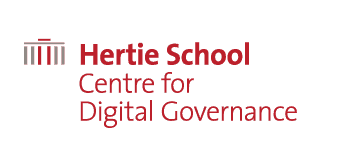Our focus
Our focus is on how the Digital Services Act will address online hate speech and disinformation.
These phenomena have grown increasingly widespread in recent years as individuals and disruptive actors use the power of online platforms to spread hateful or false information. This harms the collective public interest as harmful content undermines respectful and honest public discourse, and poses threats to public safety given that online hate speech can incite real-world violence. In our research we concentrate on the three big players – Facebook, Youtube, and Twitter.
Online platforms already moderate illegal and harmful content, but they do so with little transparency or accountability.
Social media platforms rely on non-transparent algorithms to identify, delete, or block illegal and harmful content. Content that cannot easily be classified by the algorithm falls to human content moderators, who exercise judgement according to rule set by the platform to classify content, while training the algorithms to further improve their initial classifications. This process is also called content moderation.
Content moderation is not a silver bullet in countering hate speech and disinformation.
Algorithms can fail to decipher the nuance and context of online speech, which leads to wrongful removals and the blocking of legitimate speech. These are reasons why regulators have been hesitant to impose a general monitoring obligation and strict liability for social media platforms; however, indications are that the new Digital Services Act may prescribe proactive measures for companies to strengthen content moderation, and may also lay out stricter provisions to govern algorithms to strengthen transparency and accountability.
The Digital Services Act may include additional regulatory oversight.
The EU Commission is also likely to strengthen regulatory oversight in order to improve the speed and coordination among multiple regulatory environments within the EU where platforms are subject to multiple national and local-specific regulations. A public tender for €2.5 mio has already been advertised to create a European digital media observatory. How this regulator would relate to EU- and national-level institutions, as well as how it would operate in practice, remains unclear.
Our vision
We aim to contribute to a respectful and reliable internet.
Our mission is to share information and knowledge about the development of the Digital Services Act and thus raise awareness of how it relates to addressing online hate speech and disinformation on this website. This relationship is not obvious, but the Digital Services Act is likely to affect how tech companies moderate online public discourse. Under the leadership of the German Presidency the European Commission is going to make crucial decisions that will shape the development of a European model for digital transformation. This emerging model is not only going to affect the lives of people inside the European Union but is also going to serve as a role model for other countries in the World facing similar issues.
We believe in transformation.
We believe that more public discourse on the decisions by the European Commission is needed to better understand and provide feedback on the directions the EU will take. We will contribute to this debate during the public consultation of the European Commission regarding the Digital Services Act by providing information about ongoing developments and the different policy approaches that Europe could take to tackle online hate speech and disinformation.
We want to be a part of this transformation.
We are a group of graduate students who have teamed up with Daniela Stockmann, Professor of Digital Governance at the Hertie School, the University of Governance in Berlin, Germany. The Hertie School’s mission is to prepare students for leadership positions in government, business and civil society institutions, to produce knowledge for good governance and policymaking and to encourage responsible stewardship of the common good. As such, we consider ourselves as politically independent and are open political positions from the entire political spectrum in support of producing positive outcomes for society.
Let us start the journey!
We are grateful for funding by the Hertie School’s Center for Digital Governance and the Hertie School’s Student and Teaching Activity Fund. The Hertie School is a private university based in Berlin, Germany, accredited by the state and the German Science Council. The school was founded at the end of 2003 as a project of the Hertie Foundation, which remains its major partner. We do not receive funding from Facebook, Google, Twitter or any other tech company.

